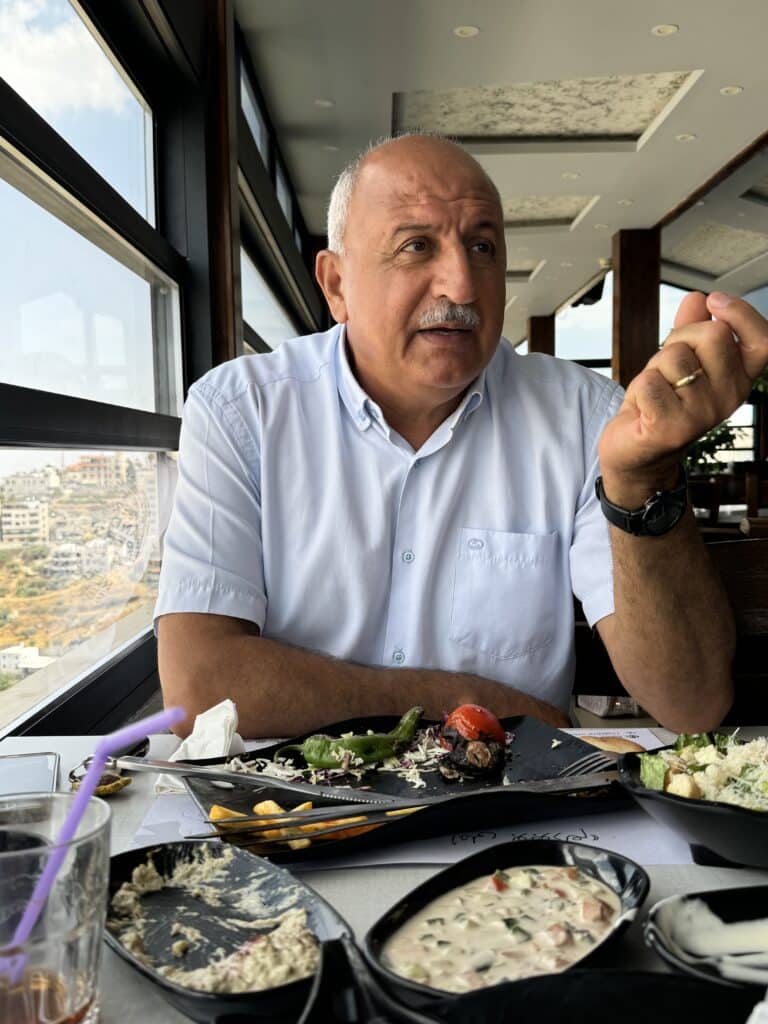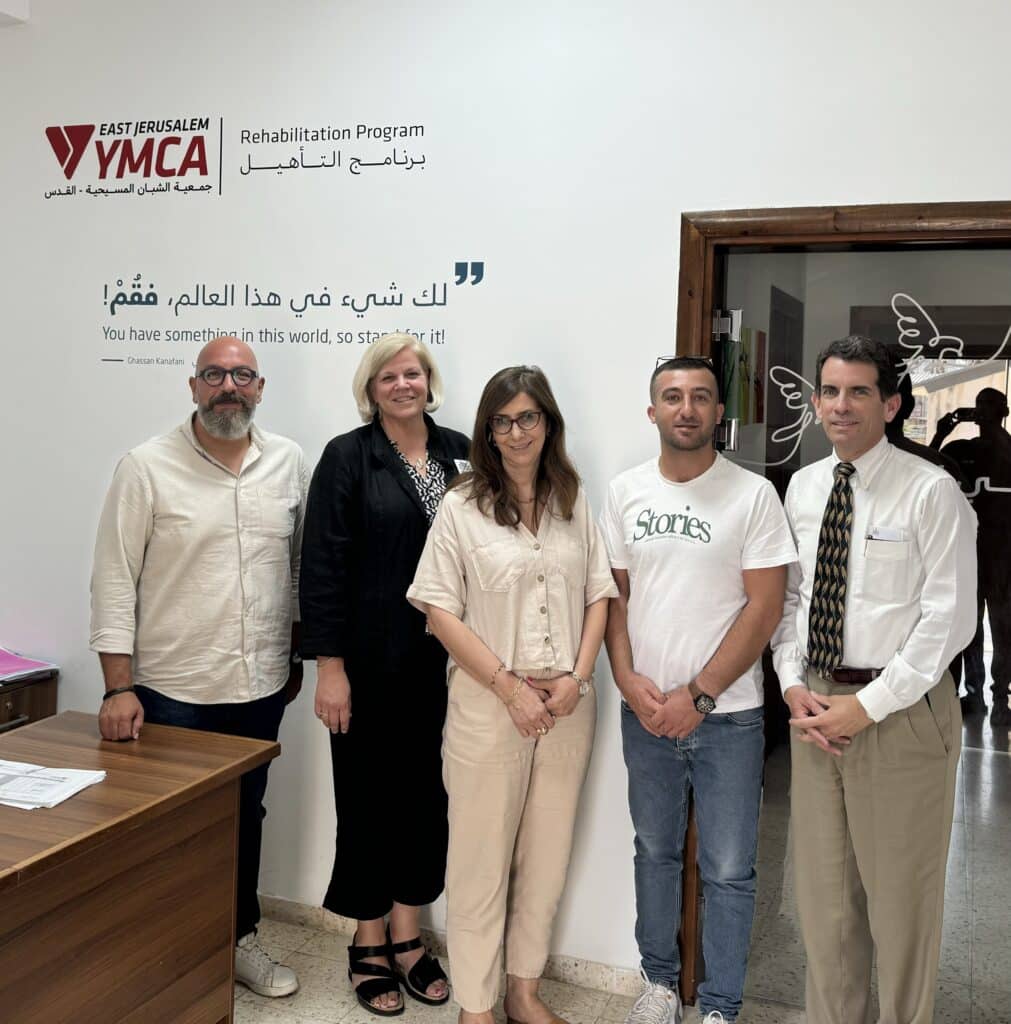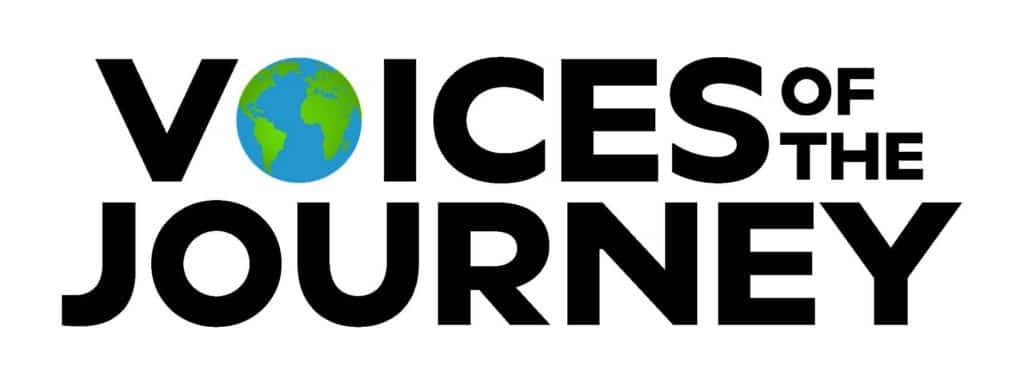Living Testimony
It’s been a frequent experience. Peter Makari and I arrive, greet our global partners and exchange introductions, settle in for our time together….and then the floodgates open. It’s as if our partners have been holding their breath, waiting for the moment when they could share their stories, express their grief, and wonder out loud about their futures. Our task was simply to listen deeply, to acknowledge their pain, to offer a ministry of presence. So much of our role here in these days of visits has been to provide pastoral care to our partners, to love them, to hear their testimony. It’s really that simple. And also that excruciatingly hard.

On Wednesday we met with the Executive Secretary of the Department of Service to Palestinian Refugees (DSPR)-Middle East Council of Churches. His job overseeing the work of DSPR in Lebanon, Jordan, the West Bank, the Nazareth, and Gaza is an unimaginably large one, especially since October 7. He is a dedicated, wise, faithful Palestinian Christian whose family has walked the lands of Palestine for 11 generations. His spirit seems deeply rooted and he emanates joy, but his life has been riddled with hardship.
He tells us about experiences he had as a boy and younger man. He was arrested four times by the Israeli military, once when he was very young for throwing stones, and later for reasons the Israeli military never specified. He tells us of the torture he endured at their hands while a prisoner, once for a solid week, a second time for 38 days, and then for over 80 days when he was 29 years old. It was unending agony. “They try to break you,” he says, so that you won’t have anything left in you to keep protesting or resisting. He breaks down only once while telling us all this, and it’s at the memory of his mother that last time he was arrested. “I will follow you,” she promised him as they led him away.

10,000 Palestinians in the West Bank alone have been arrested since October 7. The abuse and torture they’re being subjected to, including children, is well documented. He knows what it’s like. “They don’t see us as normal human beings,” he says.
Later in our time together, I ask him what message he would want us to bring back to our churches. His response pours out. He begs us to “be free from the pre-conceived ideas we get from the news”. Arabs are not dirty criminals like we’ve been made to think, he continues. Arabs and Palestinians don’t want violence; they just want to live normal lives. This conflict is not about religion; it’s about freedom and looking for a peaceful life. Reject Zionism, he says. “You are not supreme. I am not a slave. Just deal with me as a human being. Talk with us as equals.” He concludes with a firm conviction that non-violence is a commitment he has personally made, and adds a reminder that the prerequisites for reconciliation are acknowledgement of the wrongs that have been done, and justice to remedy those wrongs.
When we part from this man, I think I may have just met one of the most beautiful human beings on earth.
On that same day, we met with three staff of another of our partners, the Rehabilitation Program at the East Jerusalem YMCA. They tell us about the therapy and programs they provide for children, parents, and communities in the West Bank. The biggest challenge as they work with children, they say, is that the children are exposed to violence and trauma not just in a singular event but chronically. It never ends.
They speak of their own trauma and heartache. One staff member tells us that he lives in a refugee camp nearby that was raided the night before. Israeli military entered the streets of the camp at 2 a.m. with tanks and soldiers, conducting a ‘training exercise’. They shot up cars and water tanks, rang sirens, and generally terrorized the residents for an hour-and-a-half. He shows us video he recorded from his window. He didn’t get much sleep, of course, but this is how it is. You can’t take a day off just because such things happen, he says; there’s still work to be done, others who need help.
As our 90-minute conversation winds down, I ask them what they most need from us as partners. “What does a good partnership mean to you right now?” This is what they said:
· “Not help. Solidarity”
Believing together in one vision. To be united and to understand one another.
· Our friendship. Common morals. Common beliefs.
· Advocacy. Use your platform. You are our ambassador.
· “Your visit by itself means a lot to us. To be with us, to hear us. The real work of partnership is this kind of work, when we just sit and talk together. Our friendship really matters.”
And finally one of them says, “You know the reality. You are here. You are witnesses. You see us. We feel we’re completing each other.”
I realize that in all of this blogging I’ve done along this Middle East journey, I haven’t spent a lot of time telling you about the specific ministries of each of our partners. I could have written countless pages just talking about that. But this trip hasn’t really been about noting the outcomes of our partners’ ministries (though they are universally extraordinary) or detailing their programs. It’s been about heart. And relationships. And telling the stories we’ll never see in our media but are the truth of what’s happening here.
This is the substance of the partnerships we share through Global Ministries. We meet one another as friends. We trust one another to receive each other’s highest joys and deepest pains. We see in each other the beautiful image of God worthy of utmost dignity and respect. We long together for peace with justice, and we labor together to realize it.
May it be so. Praise God!
The Reverend Shari Prestemon began her service with the national ministries of the United Church of Christ in January 2024. As the Acting Associate General Minister & Co-Executive for Global Ministries she has the privilege of supporting several teams: Global Ministries, Global H.O.P.E., Public Policy & Advocacy Team (Washington, D.C.), our staff liaison at the United Nations, and our Gender & Sexuality Justice Team. She previously served as a local church pastor in Illinois and Wisconsin, the Executive Director at Back Bay Mission in Biloxi, Mississippi, and the Minnesota Conference Minister. Her call to ministry grew, in part, from early Global Ministries experiences, especially service as a Peace & Justice Intern in Dumaguete City, the Philippines.
Related News
Joy in an Age of Rage Bait
“Rage bait”. It’s been named by the Oxford University Press and 30,000 online voters...
Read MoreNo Justice, No Peace
“ ‘Repent, for the kingdom of heaven has come near.’ This is the one of whom the...
Read MoreNo Welcome for Refugees
Last week, the Trump administration announced it was drastically reducing the cap on refugee...
Read More